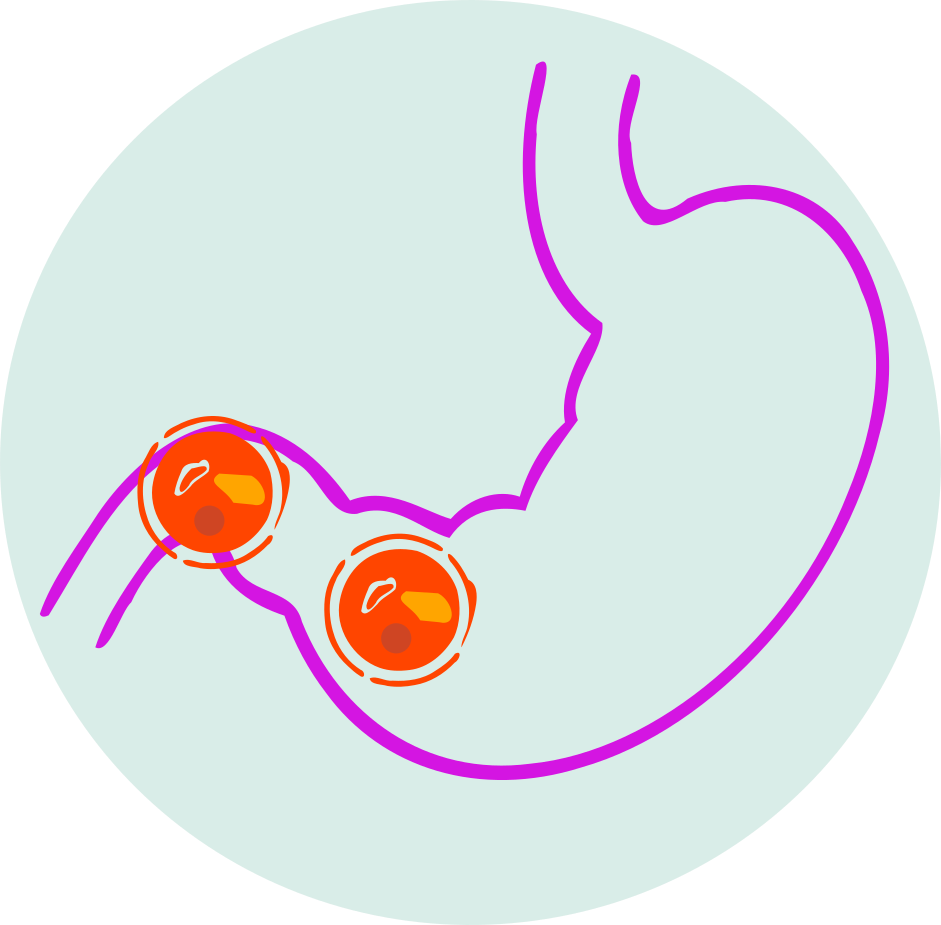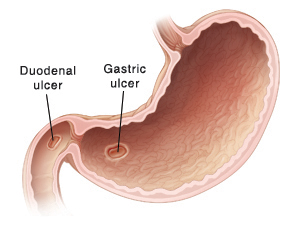| Name | Duodenal Ulcer |

Duodenal Ulcer
What is a duodenal ulcer?
Duodenal ulcer is a type of peptic ulcer. A sore or ulcer in the upper part of the small intestine is called a duodenal ulcer.
Symptoms or signs
One way to tell if you have a duodenal ulcer is to look at where and when your symptoms appear. If you have an ulcer, the following symptoms may appear early:
- Nausea
- Vomiting
- Stomach cramps
- According to digestive experts, most ulcer symptoms are related to bleeding.
It is noteworthy that about 75% of people who have duodenal ulcers do not have any initial symptoms.
Severe symptoms of ulcers include the following:
- Blood in the stool, or black stool that looks like tar
- Difficulty breathing or shortness of breath
- Feeling unconscious or losing consciousness
- Vomiting with blood
- Fatigue
If you experience abdominal pain and any of the above symptoms, consult a doctor immediately.
What causes ulcers?
Helicobacter pylori bacteria (H. pylori)
H. pylori is the most common cause of duodenal ulcers. These bacteria affect the mucus that protects your small intestine. As a result, the acid lining of your gut is damaged.
It is not clear how this bacterium spreads. However, researchers believe that it is mostly spread through unclean food, water, and eating utensils. Also, those who carry H. pylori can spread it from contact with the saliva of the carrier. Many people can get this bacterial infection in childhood. However, the infection will cause ulcers - this is very rare.
Medicine
People who use or rely on nonsteroidal anti-inflammatory drugs (NSAIDs) such as aspirin, ibuprofen, and naproxen are more likely to have peptic ulcers. Indeed, h. After pylori, the use of NSAIDs is one of the leading causes of peptic ulcers.
- Bone loss medications such as Alendronate and Risedronate
- Anticoagulants (blood thinners) such as warfarin or clopidogrel
- Some chemotherapy drugs
Others
Zollinger-Ellison syndrome causes the development of both cancerous and non-cancerous tumors. These tumors secrete hormones that produce extremely high levels of acid in the gut. Subsequently, this high level of acid can create duodenal ulcers.
Who or what is more likely to cause ulcers?
- Being 60 years of age or older
- Drinking alcohol
- Previous history of peptic ulcer in the family
- Smoking
- Serious bodily injury
Many also think that spicy foods may increase the risk of ulcers or cause them, although there is no scientific basis for this.
Can ulcers be prevented?
There is no permanent cure for ulcers. However, you can take the following strategies to reduce and prevent the risk:
- Reduce the use of NSAIDs, or take alternative medicine if you take NSAIDs regularly.
When you take NSAIDs, take them with foods or medications that protect your stomach lining. - Avoid smoking, as it can slow down your ulcers and increase your risk of cancer of the digestive system.
- If you have H. pylori disease, take the full course of antibiotics given to you. If you do not complete the course, the bacteria in your gut will not be completely destroyed.
- Increase physical activity. Regular exercise can activate the immune system.
Of course, take regular treatment on the advice of a doctor.


 Bangla
Bangla English
English